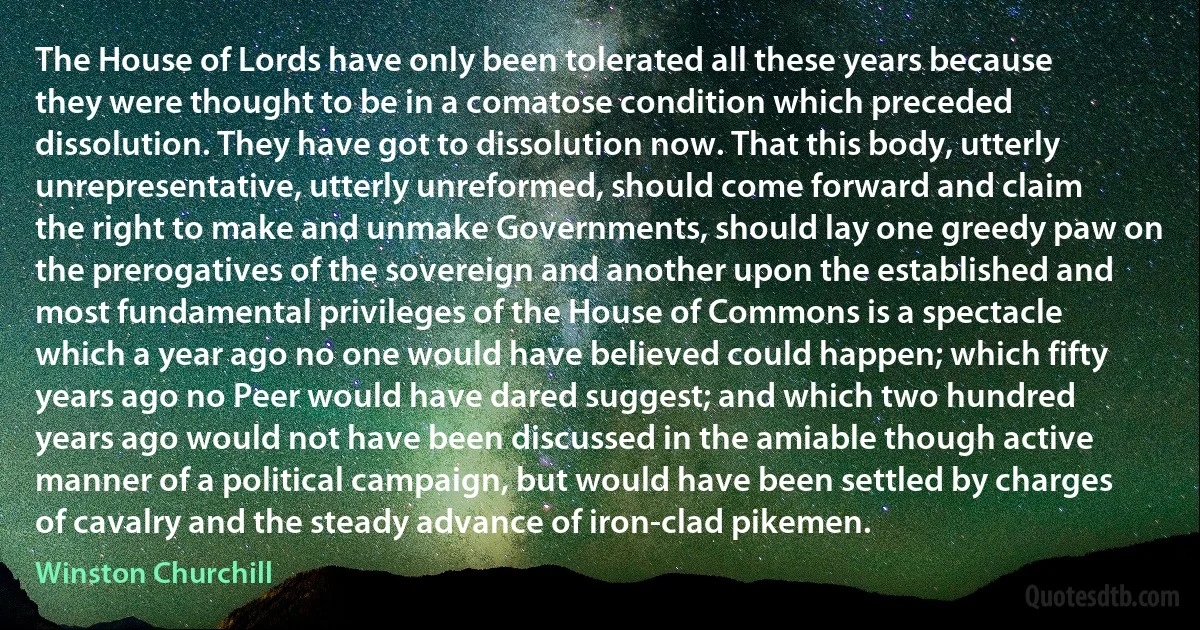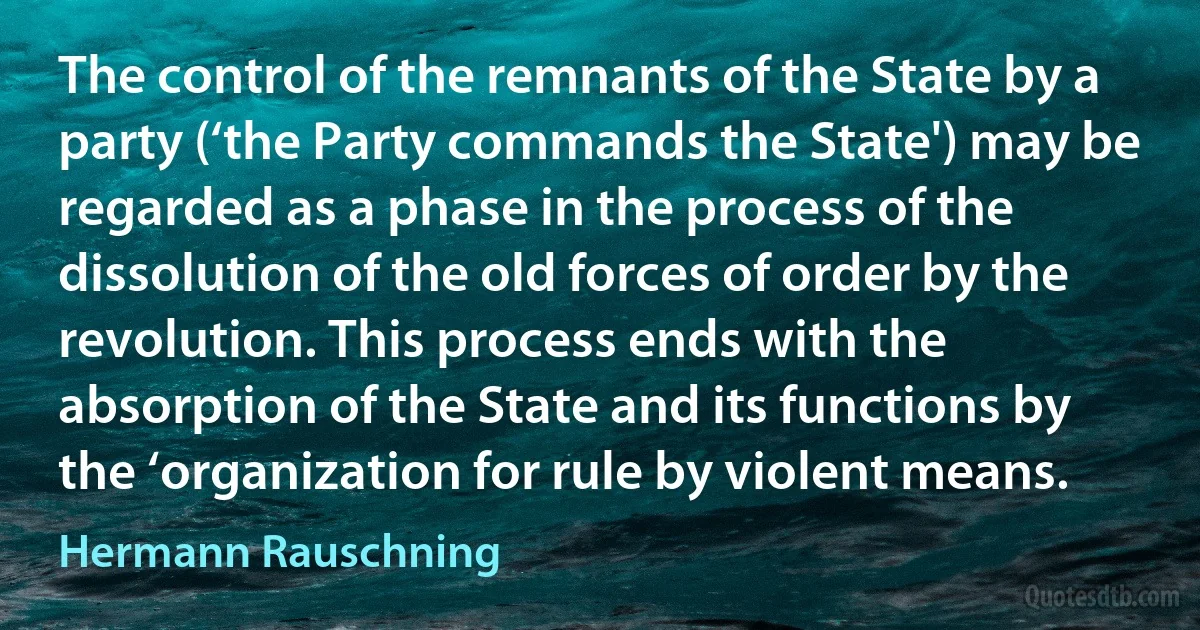Dissolution Quotes - page 3
It had been the consistent belief of the Christian world, down to the period now under consideration, that the origin of this planet was not more remote than a few thousand years; and that since the creation the deluge was the only great catastrophe by which considerable change had been wrought on the earth's surface. On the other hand, the opinion was scarcely less general, that the final dissolution of our system was an event to be looked for at no distant period.

Charles Lyell
It was objected to Hooke, that his doctrine of the extinction of species derogated from the wisdom and power of the Omnipotent Creator; but he answered, that as individuals die, there may be some termination to the duration of a species; and his opinions, he declared, were not repugnant to Holy Writ: for the Scriptures taught that our system was degenerating, and tending to its final dissolution; 'and as, when that shall happen, all the species will be lost, why not some at one time and some at another?'

Charles Lyell
The 'Little' or 'Barebones' Parliament, summoned by Oliver Cromwell to meet at Westminster on 4th July, 1653, after the dissolution of the remains of the Long Parliament, may have been an unpractical body, so far as the task of administration in troublous times was concerned. But it seems quite possible that the wealth of contumely and scorn which has been poured upon it was, originally, due quite as much to the fierce anger of vested interests against outspoken criticism, as to any real vagueness or want of practical wisdom in the plans of the House itself.

Edward Jenks
[O]f articles of food, those which are unsuitable and hurtful to man when administered, every one is either bitter... or saltish or acid, or something else intense and strong, and therefore we are disordered by them... But all those things of which a man eats and drinks are devoid of any such intense and well-marked quality... which man is accustomed to use for food, with the exception of condiments and confectionaries, which are made to gratify the palate and for luxury. And from those things, when received into the body abundantly, there is no disorder nor dissolution of the powers belonging to the body; but strength, growth, and nourishment... for no other reason than because they are well mixed, have no thing in them of an immoderate character, nor anything strong, but the whole forms... [of] simple and not strong substance.

Hippocrates
Lenin's thesis is that the party Central Committee should have the privilege of naming all the local committees of the party. It should have the right to appoint the effective organs of all local bodies from Geneva to Liege, from Tomsk to Irkutsk. It should also have the right to impose on all of them its own ready-made rules of party conduct. It should have the right to rule without appeal on such questions as the dissolution and reconstitution of local organizations. This way, the Central Committee could determine, to suit itself, the composition of the highest party organs. The Central Committee would be the only thinking element in the party. All other groupings would be its executive limbs.

Rosa Luxemburg
In immediate self-consciousness the simple ego is absolute object, which, however, is for us or in itself absolute mediation, and has as its essential moment substantial and solid independence. The dissolution of that simple unity is the result of the first experience; through this there is posited a pure self-consciousness, and a consciousness which is not purely for itself, but for another, i.e. as an existent consciousness, consciousness in the form and shape of thinghood. Both moments are essential, since, in the first instance, they are unlike and opposed, and their reflexion into unity has not yet come to light, they stand as two opposed forms or modes of consciousness. The one is independent whose essential nature is to be for itself, the other is dependent whose essence is life or existence for another. The former is the Master, or Lord, the latter is the Bondsman.

Georg Wilhelm Friedrich Hegel
In the process of burning out these confusions, we discover enlightenment. If the process were otherwise, the awakened state of mind would be a product dependent upon cause and effect and therefore liable to dissolution. Anything which is created must, sooner or later, die. If enlightenment were created in such a way, there would always be a possibility of ego reasserting itself, causing a return to the confused state. Enlightenment is permanent because we have not produced it; we have merely discovered it.

Chogyam Trungpa
According to the Buddhist tradition, the spiritual path is the process of cutting through our confusion, of uncovering the awakened state of mind. When the awakened state of mind is crowded in by ego and its attendant paranoia, it takes on the character of an underlying instinct. So it is not a matter of building up the awakened state of mind, but rather of burning out the confusions which obstruct it. In the process of burning out these confusions, we discover enlightenment. If the process we otherwise, the awakened state of mind would be a product, dependent upon cause and effect and therefore liable to dissolution.

Chogyam Trungpa
Today we face a problem that involves two difficult to satisfy conditions. On the one hand we have to find a way for computer assisted verification of mathematical proofs. This is necessary, first of all, because we have to stop the dissolution of the concept of proof in mathematics. On the other hand, we have to preserve the intimate connection between mathematics and the world of human intuition. This connection is what moves mathematics forward and what we often experience as the beauty of mathematics.

Vladimir Voevodsky



